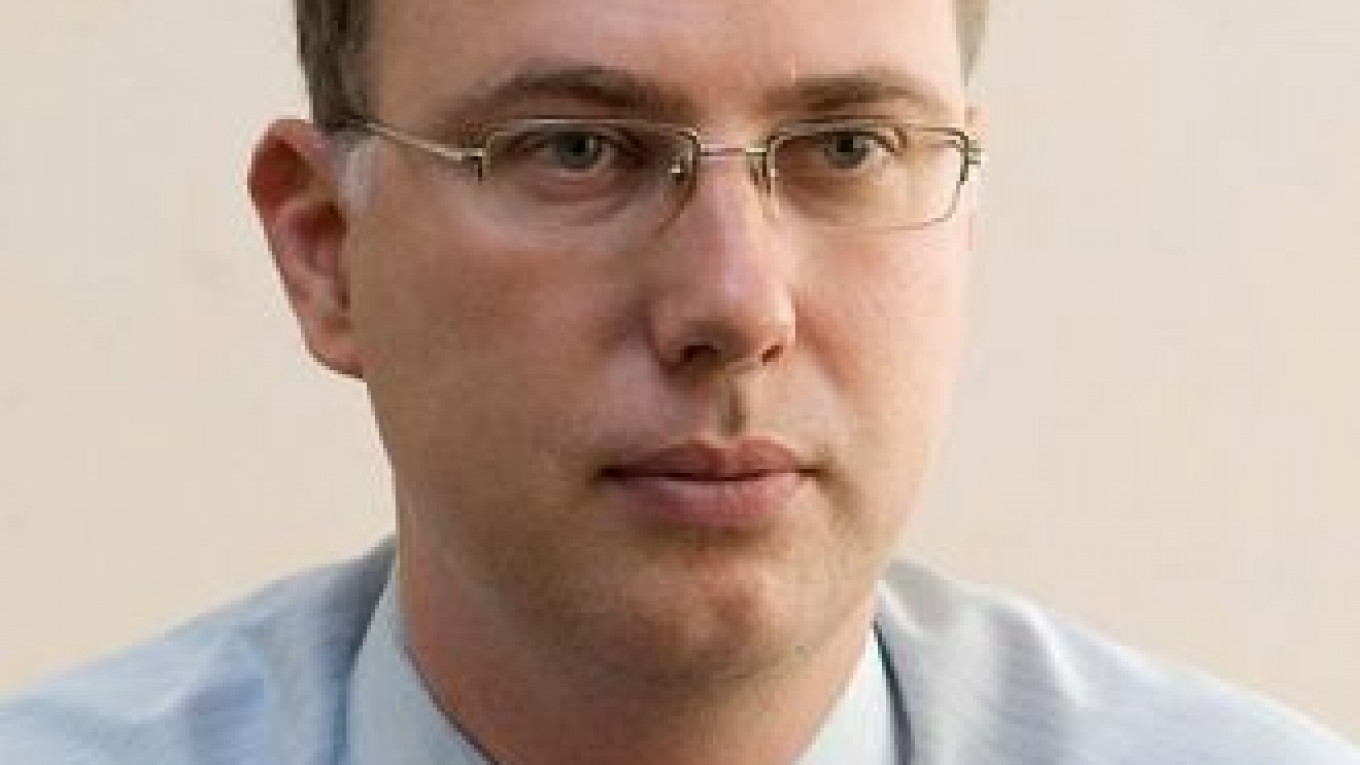Despite the dramatic shake-up facing the global economy, leading private equity funds are showing a growing appetite for Russia, saying they are ready to expand their investment in the country over the next year, according to a survey released Thursday.
A total of 48 percent of private equity investors surveyed by Ernst & Young between February and April said they would increase acquisition activities, up from 25 percent in October, the consulting company reported after surveying 150 leading private equity funds in 22 countries.
The number of deals by private equity funds in Russia totaled 55 last year, compared with 46 in 2010, with the average deal size growing from $48 million to $76 million, Alexei Ivanov, Ernst & Young’s head of transaction advisory services for the CIS, told a news conference at the company’s Moscow office.
The figures contrast sharply with recent statistics by the Central Bank, whose chairman, Sergei Ignatyev, said earlier this month that Russia’s capital outflow had reached $46.5 billion in the first five months of the year. The bank sees capital outflow at $10.5 billion this year if the oil price remains at $100 a barrel.
One of the most likely reasons behind the trend is the diversification of risks by investors amid the current turbulence in global markets, said Christopher Rose, partner at law firm Squire Sanders and co-head of Russian Private Equity Initiative, which unites private equity firms working in Russia.
The capital flying out of the country might also include so-called hot money, which investors transfer from one country to another in pursuit of the highest possible return, as well as investment abroad by Russian residents, said Kirill Dmitriyev, chief executive of the Russian Direct Investment Fund, or RDIF.
Dmitriyev, who spoke at the same news conference, said Russia’s stable macroeconomic situation and high income per capita attract foreign investors, although they also understand the challenges investors are likely to face in the country, including red tape, high corruption levels and the need to improve the work of courts.
The RDIF, the government investment vehicle worth $10 billion, jointly with a few private equity funds investing in Russia, such as UFG Private Equity and Mint Capital, plans to provide recommendations to President Vladimir Putin on possible measures to stimulate investment locally.
Among the steps are amending legislation to enable domestic pension funds to invest in Russia jointly with private equity funds, introducing international financial reporting standards in all Russian companies to make their financial statements more understandable for foreign investors and providing comprehensive information on support for foreign investors in the regions, Dmitriyev said.
These measures will be discussed at a meeting with Putin during the International Economic Forum to be held in St. Petersburg next week, he said.
A Message from The Moscow Times:
Dear readers,
We are facing unprecedented challenges. Russia's Prosecutor General's Office has designated The Moscow Times as an "undesirable" organization, criminalizing our work and putting our staff at risk of prosecution. This follows our earlier unjust labeling as a "foreign agent."
These actions are direct attempts to silence independent journalism in Russia. The authorities claim our work "discredits the decisions of the Russian leadership." We see things differently: we strive to provide accurate, unbiased reporting on Russia.
We, the journalists of The Moscow Times, refuse to be silenced. But to continue our work, we need your help.
Your support, no matter how small, makes a world of difference. If you can, please support us monthly starting from just $2. It's quick to set up, and every contribution makes a significant impact.
By supporting The Moscow Times, you're defending open, independent journalism in the face of repression. Thank you for standing with us.
Remind me later.






